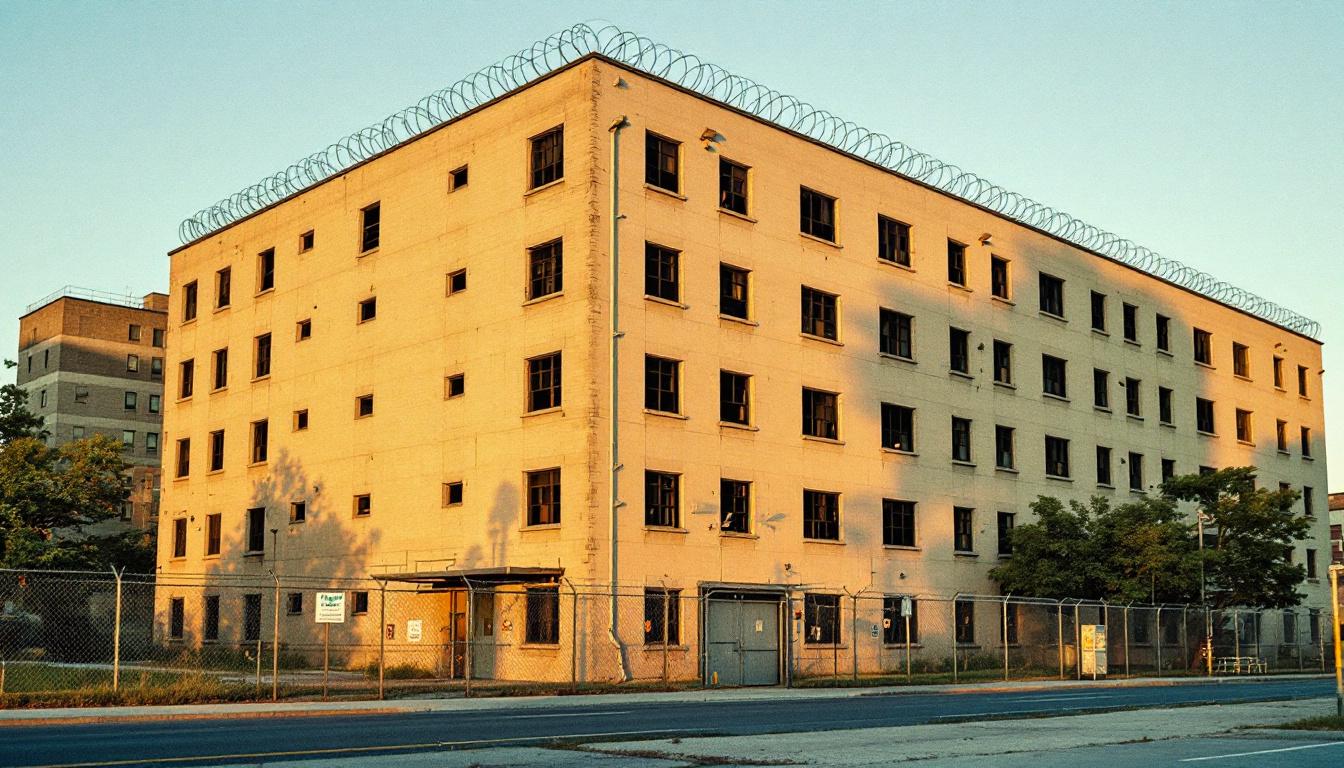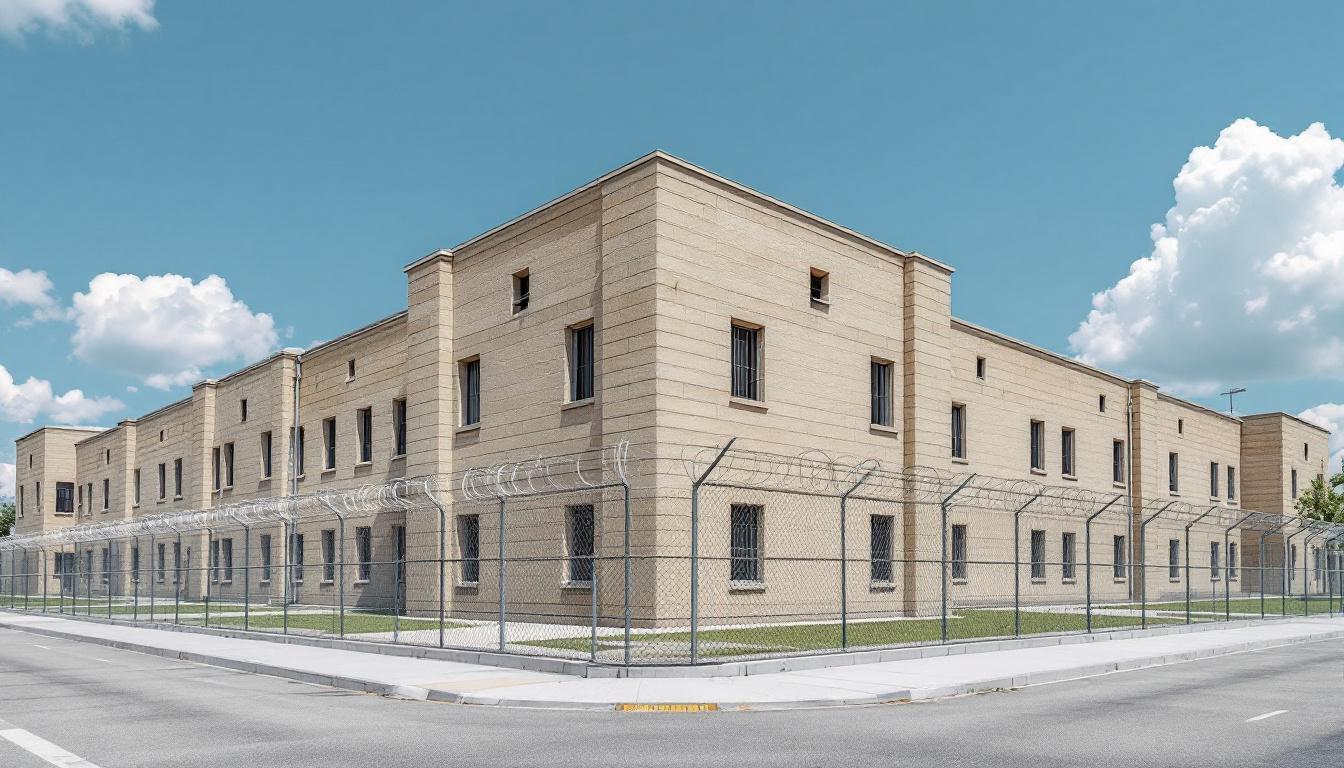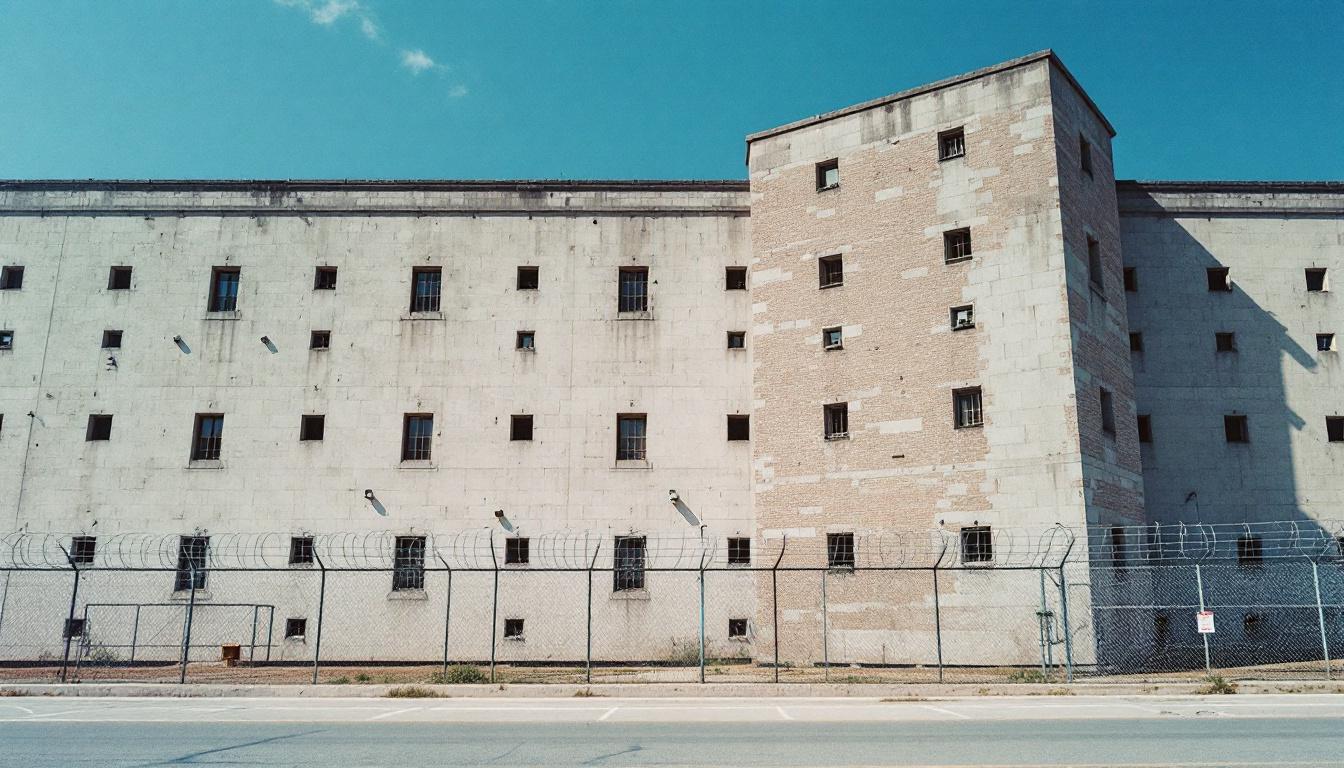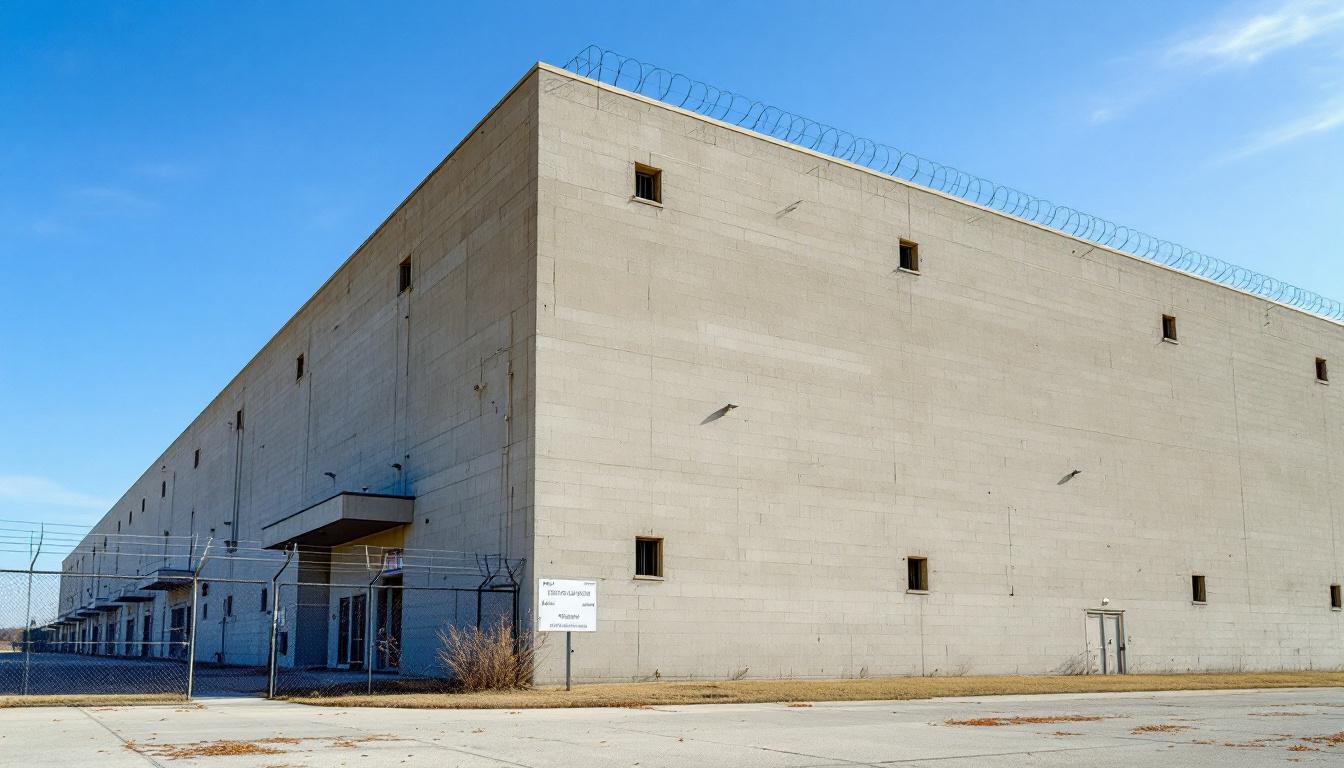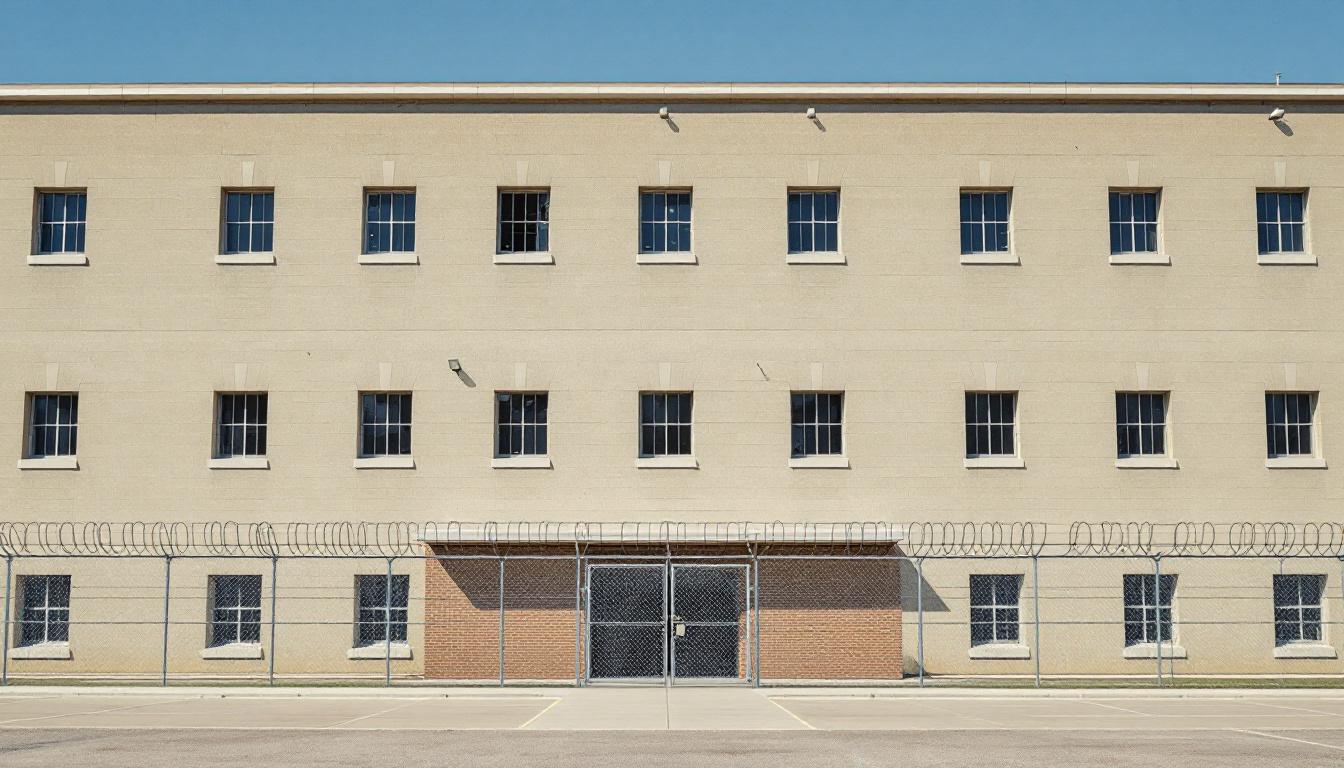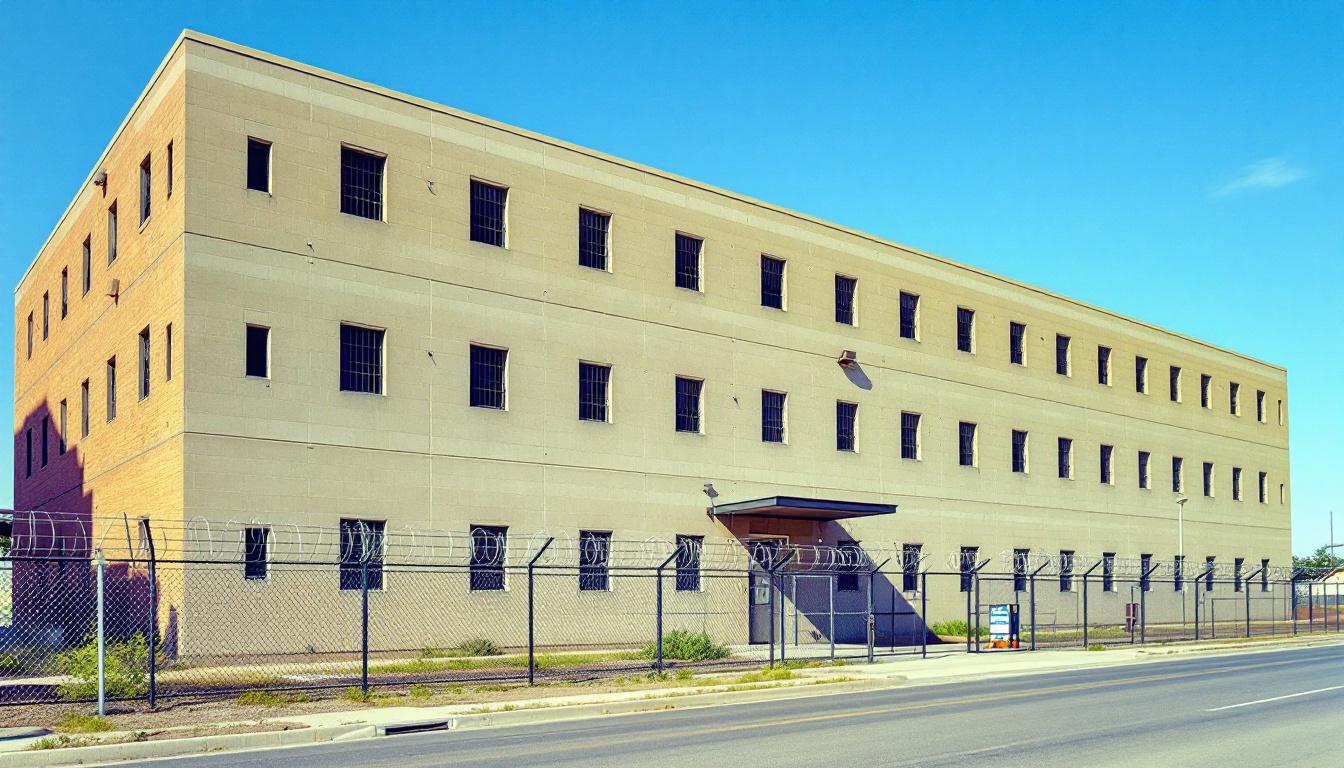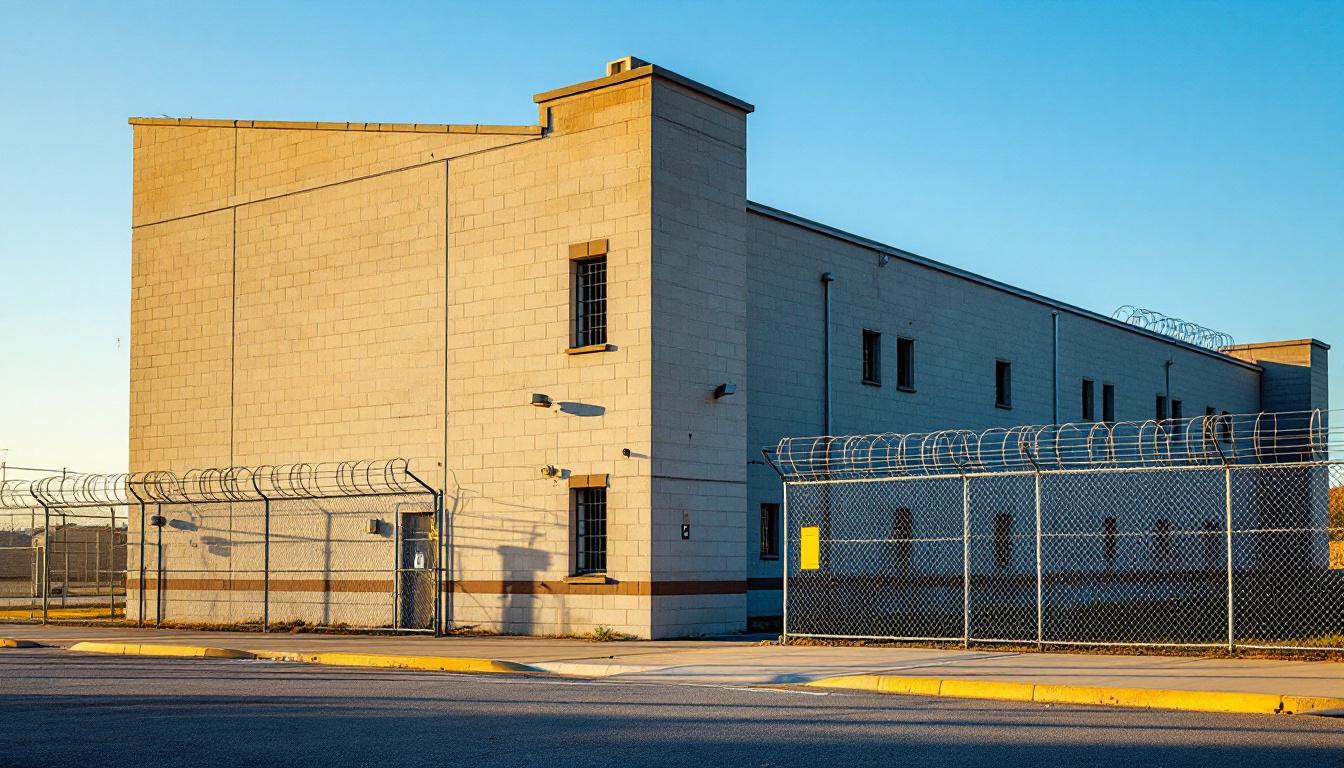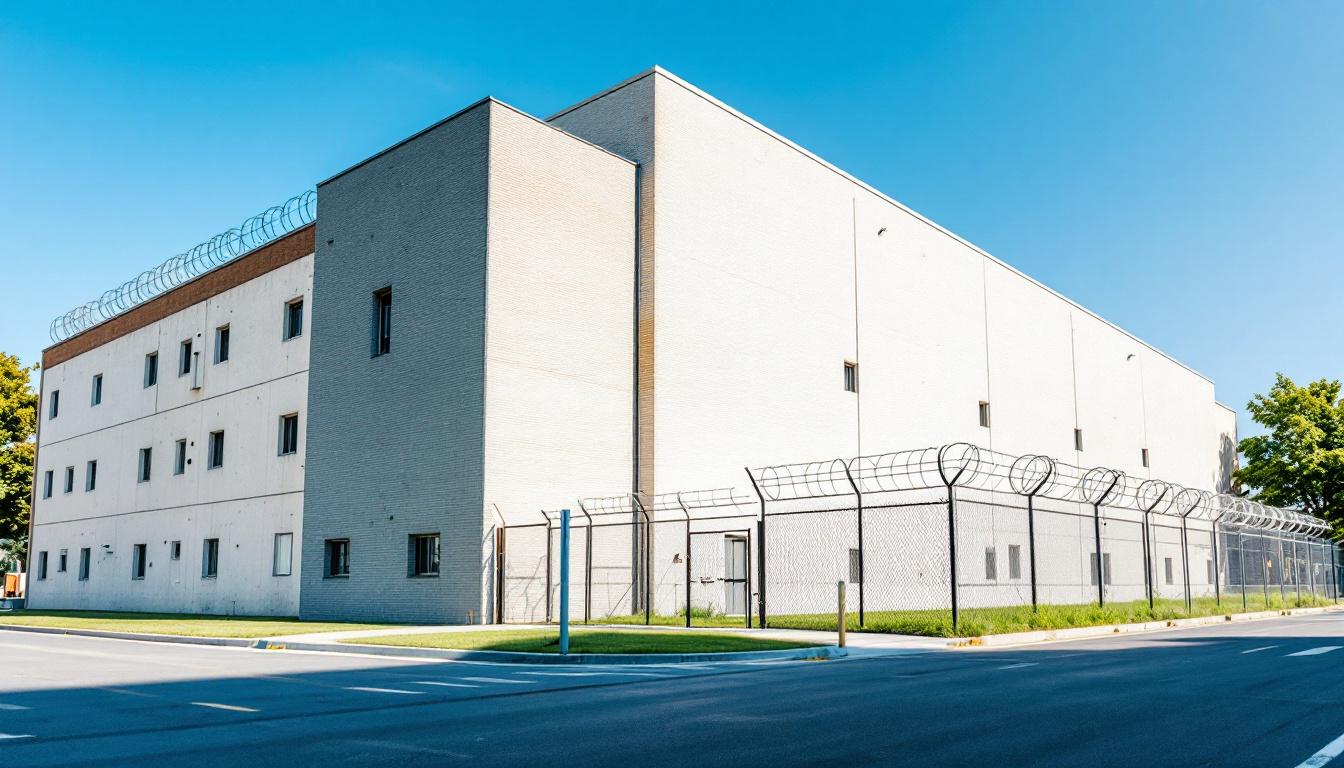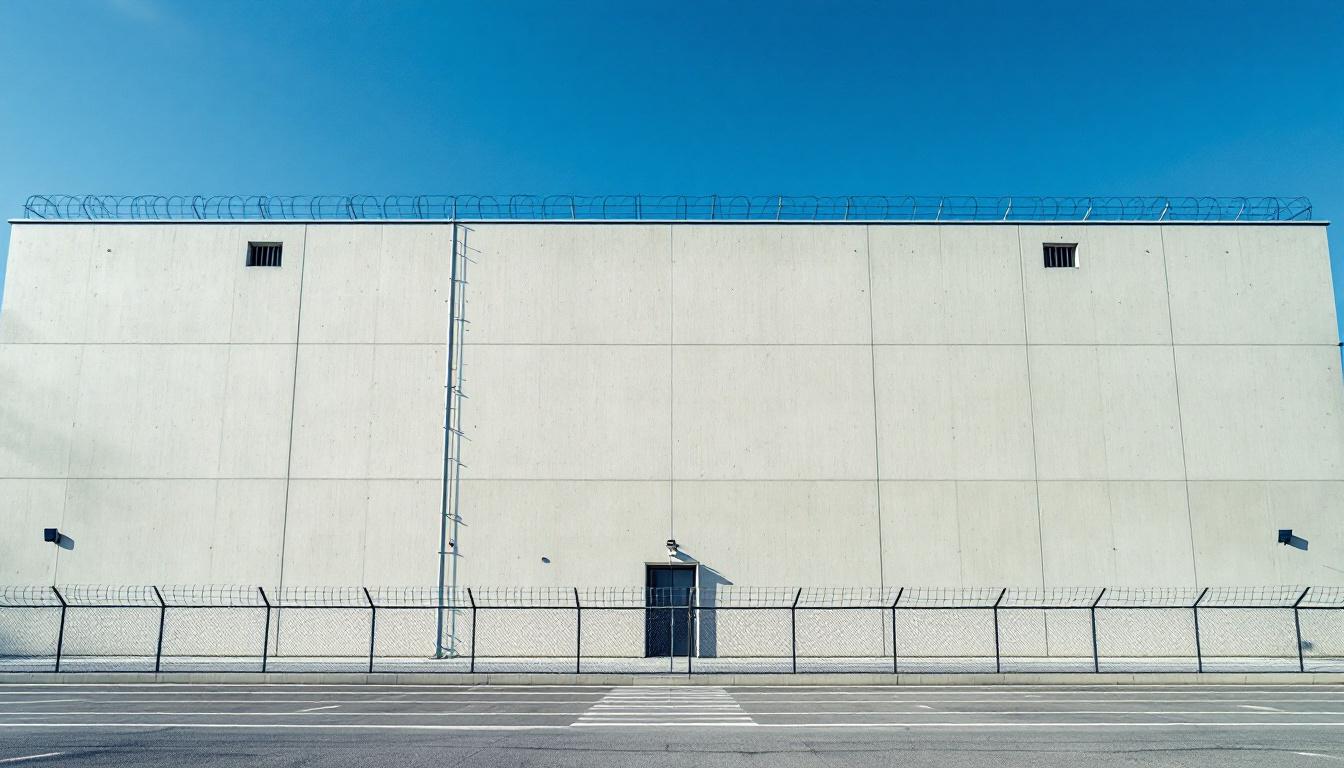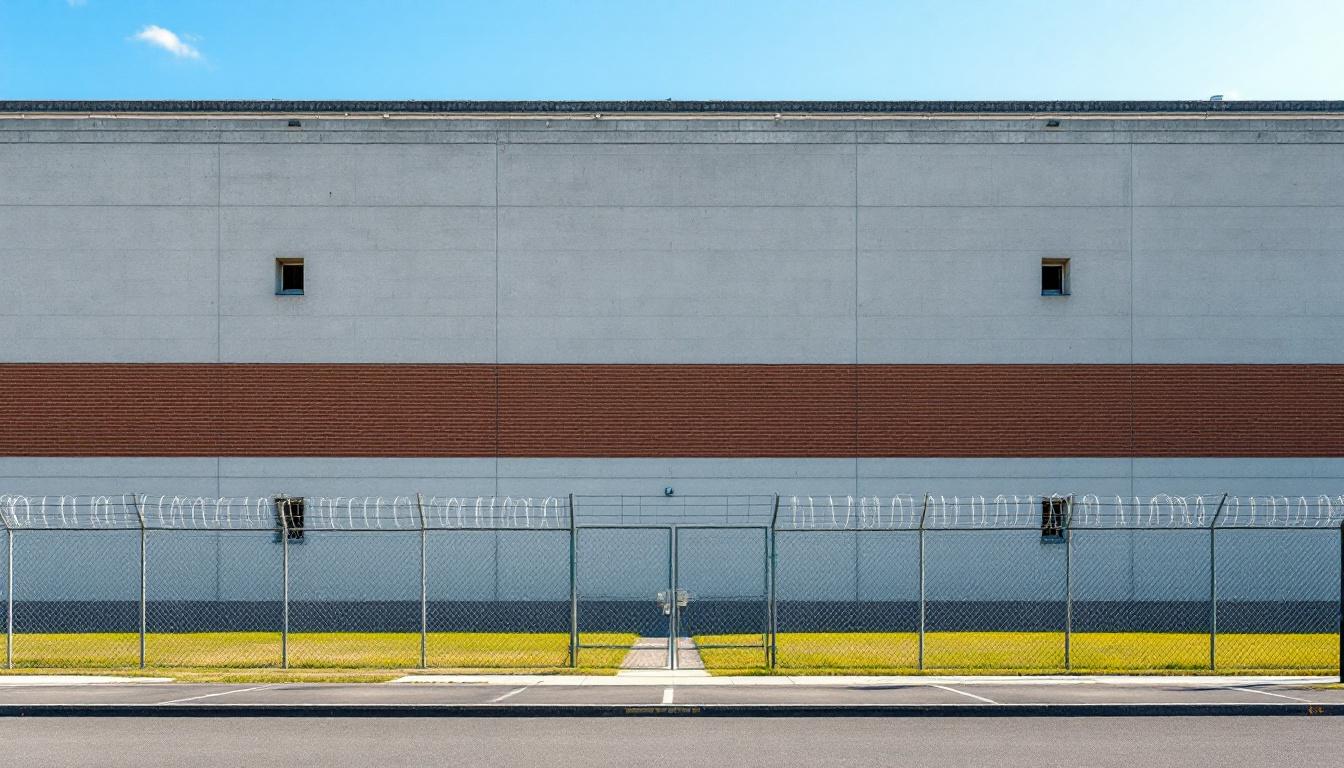
Quick Navigation
How to contact an inmate at Pittsburg County Sheriff
This comprehensive guide will walk you through how to connect with an inmate at Pittsburg County Sheriff. Follow the steps below to find an inmate and send letters and photos:
- Search for the inmate using our search tool below
- Create your account or log in to Penmate
- Write your message (up to 6,000 characters)
- Send instantly - inmates receive printed copies daily
Find an Inmate
Search for an inmate to start communicating today
Tip: You can search by first name, last name, or inmate ID number
To contact a person at Pittsburg County Sheriff start by searching for the person on the official facility website. Perform a search by following these steps:
- Step 1: Enter their first name and last name into the search form and click "Search"
- Step 2: Locate their inmate record
- Step 3: Write down their Inmate ID and any housing information provided
Important! Be sure to enter the person's full name. Nicknames should not be used.
How to Send Messages to Inmates

You can use your phone or computer to send emails, letters, and photos to an inmate. Messages are sent electronically to inmate tablets or kiosks at the facility. If you would like to send a message, start by searching for an inmate at Pittsburg County Sheriff.
Sending Photos and Postcards

A great way to send love and support to a loved one at Pittsburg County Sheriff is to send photos and postcards. It only takes a few minutes to send photos from your phone and it makes a huge difference. You can also mail postcards with words of support and inspiration, or design your own postcard for special moments like birthdays and holidays.
Important! Be sure not to send any explicit photos or they may not be approved by the facility. You can also use a photo printing app like Penmate to make sure your photos are printed at the correct size (4x6 or 3x5) and are mailed according to the rules and regulations of Pittsburg County Sheriff.
Frequently asked questions about Pittsburg County Sheriff
-
How long does it take to deliver a message?
If you're sending an email message your letter is usually delivered within 24-48 hours. For messages sent via mail you should expect delivery within 3-7 days. All messages will need be approved by Pittsburg County Sheriff.
-
How much does it cost to send a message to Pittsburg County Sheriff?
You can send a message free using your phone or mail a message via USPS for the price of a $0.60 stamp and envelope. You can also purchase credits or e-stamps from services starting at $1.99.
-
What services can I use to contact an inmate at Pittsburg County Sheriff?
Penmate
You can use Penmate to send letters and photos to an inmate from your phone. It's an easy way to stay in touch during your loved one's incarceration. Use the inmate locator to find an inmate's location and contact information, then you can send messages within a few minutes.
Securus messaging
Securus may be another option for communicating with an inmate at Pittsburg County Sheriff. You can create a friends and family account and purchase credits to send messages. All messages will be reviewed and must be approved by the facility.
JPay
Some county jails and state prisons may support sending messages with JPay. You must register an account with the system, find your loved one, and purchase stamps to send messages. For some locations you can also attach photos.
Smart Jail Mail
You may also check if Smart Jail Mail is available at Pittsburg County Sheriff. Smart Jail Mail is operated by Smart Communications and has contracted with some state and county jails. After purchasing credits, your messages and photos are sent to the facility, printed out, and then handed out to your loved one.
-
What is the mailing address of Pittsburg County Sheriff?
Mailing address:
Pittsburg County Sheriff
1210 N West St
McAlester, OK 74501
Phone: (918) 423-5858 -
What are the visiting hours at Pittsburg County Sheriff?
Visiting hours at Pittsburg County Sheriff vary by housing unit and security level. Generally, visits are scheduled on weekends and holidays, with some facilities offering weekday visits. Contact the facility directly at (918) 423-5858 or check their website for the current visiting schedule. Visits typically last 30-60 minutes and must be scheduled in advance.
-
What items are prohibited when sending mail to Pittsburg County Sheriff?
Prohibited items typically include: cash, personal checks, stamps, stickers, glitter, glue, tape, staples, paperclips, polaroid photos, musical or blank greeting cards, hardcover books, magazines with staples, and any items containing metal or electronics. Only send letters on plain white paper with blue or black ink. Photos must be printed on regular photo paper (no Polaroids). Always check with Pittsburg County Sheriff for their specific mail policies.
-
How do I send money to an inmate at Pittsburg County Sheriff?
You can send money to an inmate at Pittsburg County Sheriff through several methods: 1) Online using JPay, Access Corrections, or the facility's approved vendor, 2) Money orders mailed directly to the facility with the inmate's name and ID number, 3) Kiosks located in the facility lobby, or 4) Over the phone using a credit or debit card. Fees vary by method, typically ranging from $2.95 to $11.95 per transaction.
-
Can I schedule a video visit with an inmate at Pittsburg County Sheriff?
Many facilities now offer video visitation as an alternative to in-person visits. At Pittsburg County Sheriff, video visits may be available through services like Penmate, Securus Video Connect, GTL, or ICSolutions. Video visits typically cost $10-20 for 20-30 minutes and must be scheduled in advance. You'll need a computer or smartphone with a camera and reliable internet connection. Contact the facility for their specific video visitation policies and approved vendors.
-
What identification do I need to visit an inmate at Pittsburg County Sheriff?
All visitors must present valid government-issued photo identification such as a driver's license, state ID, passport, or military ID. Minors must be accompanied by a parent or legal guardian who can provide the minor's birth certificate. Some facilities require visitors to be on the inmate's approved visitation list, which may require a background check. Contact Pittsburg County Sheriff for specific ID requirements and visitor approval procedures.
-
How can I find out an inmate's release date?
To find an inmate's release date at Pittsburg County Sheriff, you can: 1) Use the online inmate search tool if available, 2) Call the facility's records department, 3) Contact the inmate's case manager or counselor, or 4) Have the inmate provide this information during a call or visit. For privacy reasons, some facilities only release this information to immediate family members.
Facility Overview
Contact Information
Pittsburg County Sheriff1210 N West St
McAlester, OK 74501
Phone: (918) 423-5858
Official Website

About Pittsburg County Sheriff
County jails across Oklahoma serve as critical entry points where rehabilitation begins long before formal sentencing, and Pittsburg County Jail in McAlester exemplifies this essential function within the state's broader correctional framework. As an OK correctional facility, it typically operates as more than a temporary holding facility, often providing the population services that can set the foundation for successful community reintegration. The facility generally maintains programs designed to address immediate needs while preparing individuals for their next steps, whether that involves returning to their families or transitioning to other parts of the correctional system.
Located in McAlester, the jail benefits from its position in southeastern Oklahoma's regional network of support services and community resources. This geographic context often allows for meaningful connections between incarcerated individuals and local organizations that may continue supporting them after release. The facility typically offers educational opportunities, substance abuse counseling, and vocational training programs that emphasize practical skills needed for employment and family stability. Mental health services and medical care are generally available to address underlying issues that may have contributed to legal troubles.
The jail's role within Oklahoma's correctional system extends beyond simple detention, as it frequently serves as a bridge between arrest and long-term rehabilitation goals. Staff members typically work to maintain family connections through visitation programs and communication services, recognizing that strong community ties significantly improve reintegration outcomes. The facility may also coordinate with local courts, probation services, and community organizations to ensure continuity of care and support as individuals move through the justice system and back into their communities.
Programs & Services
Through a comprehensive network of supportive services, the population at Pittsburg County Jail receives assistance designed to address both immediate needs and long-term reintegration goals. The facility's approach centers on providing meaningful opportunities that help individuals develop practical skills while maintaining connections to their community and family. These programs typically emphasize personal growth and preparation for successful transition back into society.
Educational and vocational programs form a significant component of the supportive services available to the population. Education programs may supply basic literacy instruction, GED preparation, and continuing education opportunities that help participants advance their academic standing. Also, vocational training initiatives often include automotive repair instruction, which provides hands-on experience with mechanical systems and equipment maintenance. These skill-building opportunities typically focus on trades that offer employment prospects upon release, helping individuals establish financial stability for themselves and their families.
Support services extend beyond traditional educational offerings to encompass programs that address spiritual and practical needs. Faith-based programs may offer counseling, group discussions, and spiritual guidance that help the population find meaning and direction during their incarceration. Also, specialized training in masonry and facility maintenance provides participants with construction and building maintenance skills while contributing to the upkeep of the facility itself. These programs often include mentorship components that connect participants with community members, fostering relationships that may continue after release and supporting successful reintegration into family and community life.
Daily Life & Visitation
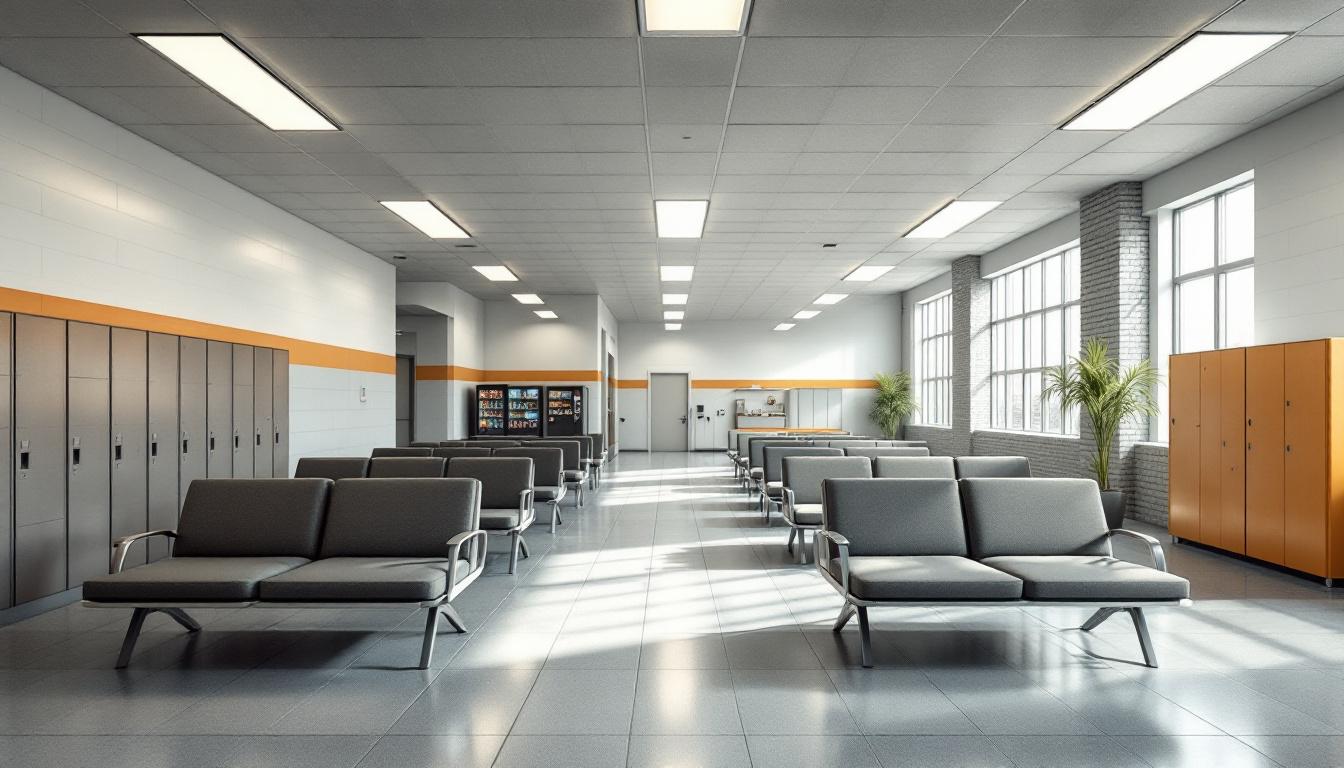
Organizational protocols shape every aspect of the experience for the population at Pittsburg County Jail, where structured schedules now govern daily activities from morning wake-up calls through evening lockdown procedures. Staff members regularly conduct headcounts and security checks that punctuate the day's rhythm. The facility typically operates on a regimented timetable that includes designated periods for meals, recreation, and programming activities. Generally, the population follows established routines that may include work assignments, educational opportunities, or structured group sessions designed to maintain order and provide productive engagement.
Housing units at the facility typically accommodate multiple individuals in dormitory-style or cell-based arrangements, depending on classification levels and available space. The population generally has access to basic amenities including bedding, personal hygiene items, and limited personal property storage. Also, meal service usually occurs in designated dining areas or housing units, with the facility providing three meals daily that meet nutritional standards. However, commissary services may allow the population to purchase additional food items and personal supplies, subject to facility regulations and individual account balances.
Recreation periods typically supply opportunities for physical exercise in designated areas, which may include outdoor yards or indoor recreation spaces when available. The facility generally offers structured programming that might include educational classes, substance abuse counseling, or vocational training designed to support rehabilitation goals. Also, visitation policies usually allow family members and approved visitors to maintain contact through scheduled visits, while communication options may include telephone access and mail services. However, all visitor interactions and communications typically operate under security protocols designed to maintain facility safety and order.
Ready to Connect?
Start communicating with your loved one today
Search for an Inmate
